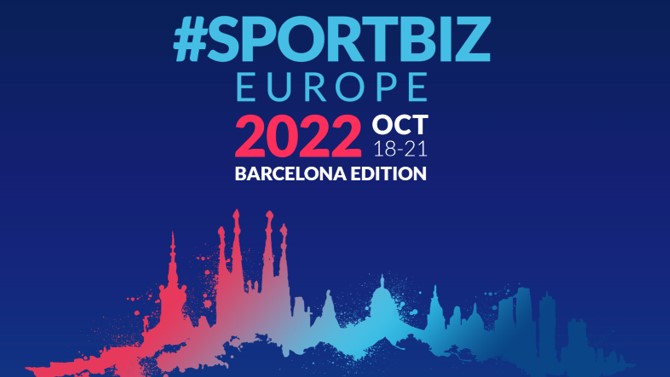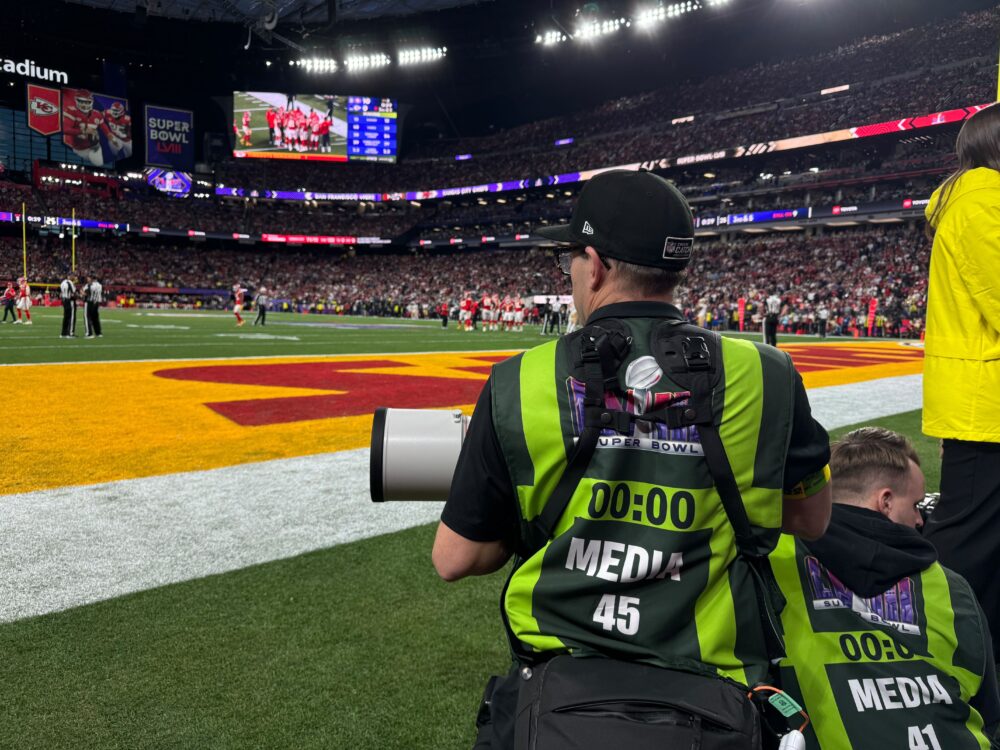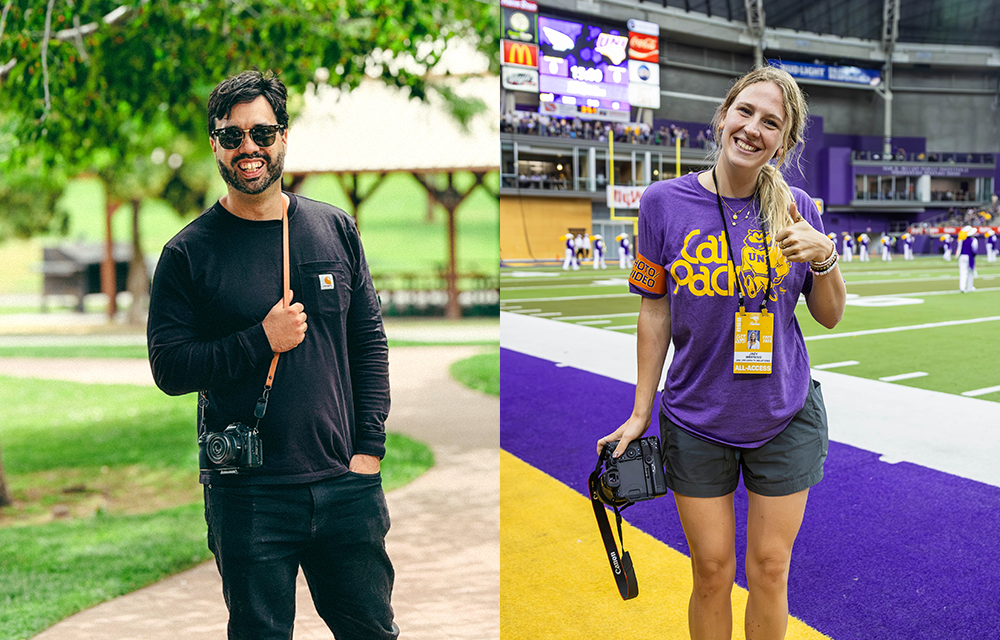Share
5 Sports and Entertainment Marketing Takeaways from SportBiz Europe
As we gear up for some major sporting events in the last part of this year, it’s encouraging to see how advances in the sports and technology ind...

As we gear up for some major sporting events in the last part of this year, it’s encouraging to see how advances in the sports and technology industries are gaining pace to create a better experience for fans and improve engagement. In Europe, experts from both industries, along with sports clubs and brands got together at the SportBiz Europe Conference to discuss the future of the sport industry with topics around innovation, digital transformation, and market trends.
Speakers from FIFA, Euroleague, FIBA, LaLiga, F1, FC Bayern, ATP & WTA, and social platform TikTok, shared their thoughts and the strategies that are enabling them to better engage with fans. They all had one common theme: connecting emotionally with fans through authentic content and using the right technology.
Let’s dive into the key takeaways from two days of inspirational talks and networking:
1. Social Media Leads the Way to Win Over Audiences
As the men’s top professional football division of the Spanish football league system, LaLiga is one of the most popular professional sports leagues globally. With over 140 million followers across their social media platforms, it’s no wonder that social media is at the core of their content strategy.
Roger Brosel, Head of Content and Programming of LaLiga explained how social media is driving fan engagement and enabling brands to reach a wider audience that they couldn’t engage with before.
“We shouldn’t assume that fans who follow us on social media are only young.”
It’s a common belief that social media followers in sport are millennials or Gen Z fans. But it’s become apparent that people across all age groups are actively engaging with sport clubs and players on socials and other digital channels.
As content consuming habits continue to evolve, with people’s attention span for sport entertainment becoming more limited, sport clubs are diversifying what and how they share content with fans. For example, short snippets from a match or from a player’s interview are shared across social media to provide fans with easy to digest content.
“Fans want to be informed, entertained, it’s all about different layers of enjoyment and connecting emotionally with fans.”
2. Create Innovative Activations to Drive Engagement
One of the most interesting learnings from the talks is how sport clubs, organisations and brands are working together on partnerships for innovative activations that enable them to offer a unique experience to fans.
For sport teams, nowadays, their competitors are no longer other sport teams but other forms of entertainment, like music, gaming, Netflix. By collaborating with brands that share the same values, sport teams can use sponsorships not only to bring in additional revenue but also to provide a unique experience to fans.
For example, Katerina Tornari, Head of New Business, Commercial Partnerships at Formula 1, explained how the longevity of their partnerships with brands like Pirelli and DHL means they’ve evolved together. She went on to add that although there are many tech innovations and new platforms that enable them to share some great storytelling, equally it’s the value those partnerships add behind the scenes.
In the case of DHL, Katerina said: “DHL is all about the race behind the race, and literally they’re getting us race by race around the world. It’s an integral part of the partnership. “
In this inspirational video, you can watch DHL’s The Race Behind the Race campaign which shows what it takes to deliver Formula 1 with DHL.
3. Redefine Fan approach with Authentic Storytelling
Sport teams and brands have had to adapt fast to fans’ evolving habits but advances in technology and new platforms are supporting this evolution. Andres Galicia, Head of Content from Bundesliga explained that it’s content like assists and goals which often gets the limelight, but what fans want more of is the real behind-the-scenes content that you don’t get to see often. Digital platforms like TikTok allow them to share content that may not get seen otherwise, such as the manager being left stunned on the sidelines after his best player dashes off, mid game, to go to the toilet, or a touching scene of a player consoling a young fan after his team lost.
For Soraya Castellanos, Head of Partnerships, Community and Content at TikTok Iberia, fan engagement is all about community and authenticity, she said: “We’re an entertainment platform, being authentic is at the core of the content. In the past content shared was very polished and glamorous, now it’s all about authenticity. It’s not about talking at fans, but talking with fans and co-creating with them.”
Alex Ferrer Kristjansson, Senior Director Marketing and Communication at Euroleague Basketball said: “The way that fans consume sport is different now, they don’t want to sit down for two hours to watch a match, so sport teams need to be more innovative about the format. In Europe, sport entertainment has been more conservative, in the past it was about showing the glamorous life of players, but younger fans want more authenticity and see their real lives.”
4. Empower your Fans by Co-creating with Them
In the UK, as a response to Super League, the Football Association is experimenting with new ways of engaging with fans. They are introducing influence from within fan groups to have voting rights so they can participate and influence the decisions about events, important initiatives of a sports club for example. This is a very powerful step as it helps being more inclusive, but that can also present challenges for sport clubs as fans are very emotionally led and may not have all the necessary knowledge. So empowering fans with the right tools and information is key.
Luke Nicholson, Head of Brand Experience at Dragon Rouge, a global creative agency which works with sport clubs around the world also talked about the importance of authenticity. He said: “Young sport consumers can see through fake messages. They’re more aware of life issues, so it’s important that as a sports team you have a purpose that makes you unique as a brand.”
Luke was previously Brand and Content Director at Southampton Football Club in England, he believes that although what you stand for, your purpose is crucial for brand storytelling, it is how you share it across all your touch points consistently that will have an impact and create engagement. He said: “As a sports team, you are a multidimensional brand.”
5. Innovate but Stay True to Your Brand Values
Speakers at SportBiz Europe all shared the opinion that the reason people like sport is because of the emotional connection. It’s why they believe sports teams have a head start in terms of fan engagement. But how do you keep that emotional connection across multiple platforms and devices while ensuring your brand stays relevant?
The 3×3 digital content team at FIBA thought of an innovative way to keep fans engaged and entertained on and off the court. While the live experience of 3×3 games is interactive and offers multiple ways to enjoy the game, including the opportunity to win prizes, live music in an intimate setting, bringing this experience online is more challenging. Esteban Gonzalez, Digital Content Manager at FIBA shared how the team came up with the idea of rather than using a traditional commentator for the games, they hired a comedian as a commentator to keep fans engaged and entertained. He shared jokes and interacted with the players and fans, while also talking about the game. The initiative was a big success and created a lot of buzz across their social media platforms.
If there is a brand that knows how to stay relevant and communicate the emotions that football brings to fans is FC Bayern Munich, and according to their Marketing Director, Thomas Glas, it all comes down to brand values.
Of the Bayern Munich brand, Thomas said: “Brand should also be an external expression of our guiding principles and values.”
His inspirational presentation took us through their brand strategy and the club’s transformation throughout the years, and how they have remained true to their brand. According to Thomas, worldwide more than 997 million people are interested in Bayern Munich. Although this is something the club is very proud of, it also presents many challenges. How do you get to know these fans and engage with them consistently? It all goes back to their values. Their brand strategy centres around providing inspiration to fans and their commitment to always giving back to them, with their brand purpose focusing on these six key areas:
- Create a meaning
- Entertain more
- Hero your home
- Act sustainable
- Act global
- Be a magnet
From two days of insightful talks and networking, it is clear to see that the sport industry has the power to positively impact the lives of fans and the community at large. Using technology to reach a larger audience while being authentic and remaining true to your brand values will be the key drivers of success for sport clubs, brands and organisations today.
At PhotoShelter we’re very proud to work with some of the best sport clubs and brands around the world, supporting their creative workflows so they can share their stunning images in real time with fans. If you’d like to learn more, follow us on Twitter @psforbrands or join our PSB Creative Slack community.



